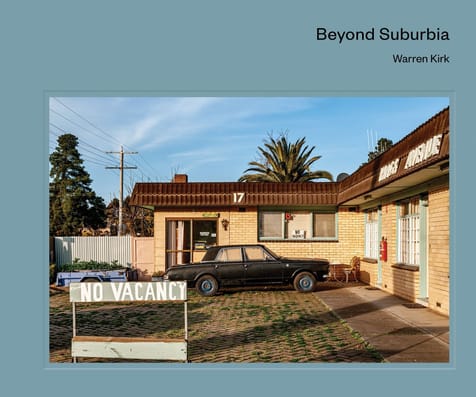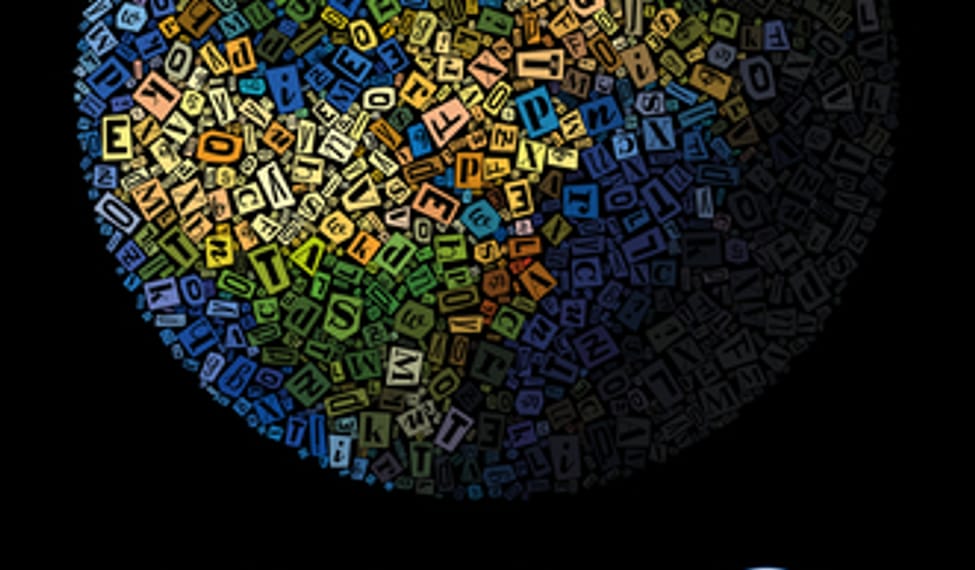
Related Books
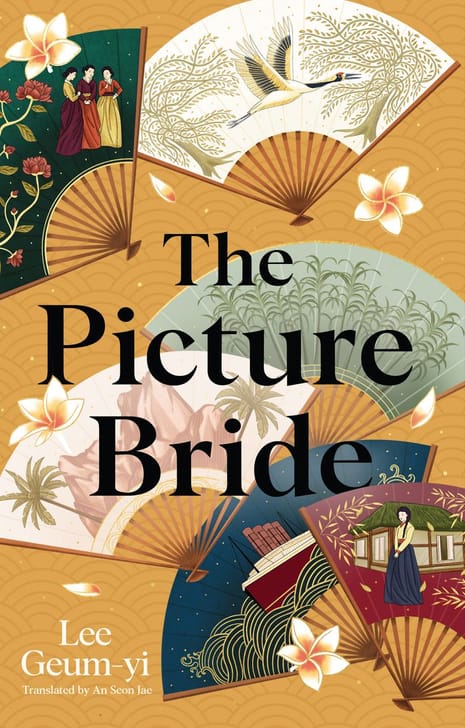
The Picture Bride
Could you marry a man you’ve never met? Three Korean women in 1918 make a life-changing journey to Hawaii, where they will marry, having seen only photographs of their intended husbands.
Different fates await each of these women. Hongju, who dreams of a marriage of ‘natural love’, meets a man who looks twenty years older than his photograph; Songhwa, who wants to escape from her life of ridicule as the granddaughter of a shaman, meets a lazy drunkard. And then there’s Willow, whose 26-year-old groom, Taewan, looks just like his image …
Real life doesn’t always resemble a picture, but there’s no going back. And while things don’t turn out quite as they’d hoped, even for Willow, they do find something that makes their journey worthwhile — each other.
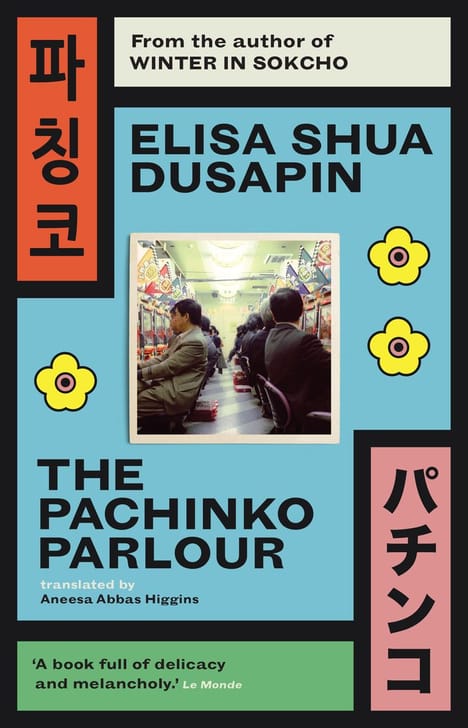
The Pachinko Parlour
From the author of Winter in Sokcho, which won the 2021 National Book Award for Translated Literature.
The days are beginning to draw in. The sky is dark by seven in the evening. I lie on the floor and gaze out of the window. Women’s calves, men’s shoes, heels trodden down by the weight of bodies borne for too long.
It is summer in Tokyo. Claire finds herself dividing her time between tutoring twelve-year-old Mieko in an apartment in an abandoned hotel and lying on the floor at her grandparents: daydreaming, playing Tetris, and listening to the sounds from the street above. The heat rises; the days slip by.
The plan is for Claire to visit Korea with her grandparents. They fled the civil war there over fifty years ago, along with thousands of others, and haven’t been back since. When they first arrived in Japan, they opened Shiny, a pachinko parlour. Shiny is still open, drawing people in with its bright, flashing lights and promises of good fortune. And as Mieko and Claire gradually bond, their tender relationship growing, Mieko’s determination to visit the pachinko parlour builds.
The Pachinko Parlour is a nuanced and beguiling exploration of identity and otherness, unspoken histories, and the loneliness you can feel within a family. Crisp and enigmatic, Shua Dusapin’s writing glows with intelligence.
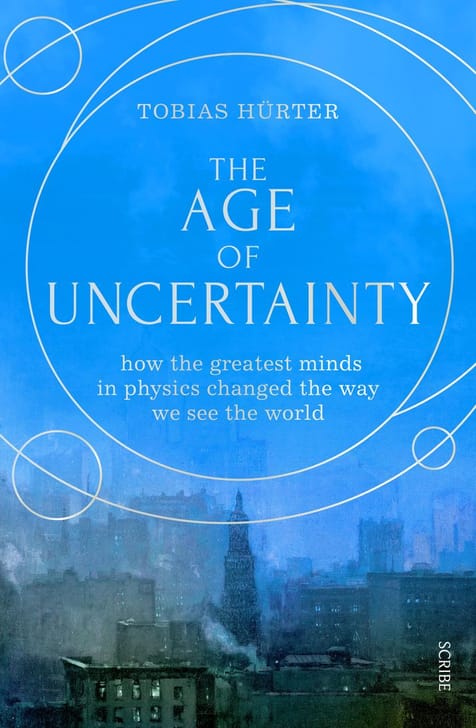
The Age of Uncertainty
The epic, page-turning history of how a group of physicists toppled the Newtonian universe in the early decades of the twentieth century.
Marie Curie, Max Planck, Niels Bohr, Werner Heisenberg, Erwin Schrödinger, and Albert Einstein didn’t only revolutionise physics; they redefined our world and the reality we live in. In The Age of Uncertainty, Tobias Hürter brings to life the golden age of physics and its dazzling, flawed, and unforgettable heroes and heroines. He immerses us in a half century of global turmoil against which some of humankind’s greatest and strangest scientific discoveries unfolded, expertly guiding us through the brilliant and mind-bending ideas that turned the world on its head.
The work of the twentieth century’s most important physicists produced scientific breakthroughs that led to an entirely new view of physics — and a view of the universe that is still not fully understood today, even as evidence for its accuracy is all around us. The men and women who made these discoveries were intellectual adventurers, renegades, dandies, and nerds, some bound together by deep friendship; others, by bitter enmity. But the age of relativity theory and quantum mechanics was also the age of wars and revolutions. The discovery of radioactivity transformed science, but also led to the horrors of Hiroshima and Nagasaki. Throughout The Age of Uncertainty, Hürter reminds us about the entanglement of science and world events, for we cannot observe the world without changing it.
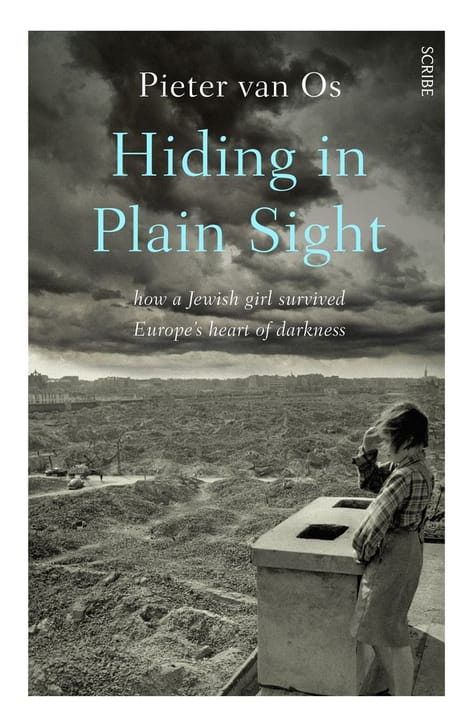
Hiding in Plain Sight
An extraordinary Holocaust survival story about a young Jewish woman who managed to survive in wartime Poland by pretending to be a Catholic.
Polish Catholics believed she was one of them. A devoted Nazi family took her in as if she was their own daughter. She fell in love with a German engineer who built aeroplanes for the Luftwaffe. What none of these people knew was that Mala Rivka Kizel had been born into a large Orthodox Jewish family in Warsaw, Poland, in 1926. By using her charm, intelligence, blonde hair, and blue eyes to assume different identities, she was the only member of her family to survive World War II.
When Dutch journalist Pieter van Os stumbled upon Mala’s story, he set out to revive the world through which she had made her way from war-ravaged middle Europe to the nascent state of Israel before finally settling in the Netherlands. With her memoir and their interviews as guide, van Os physically retraced Mala’s steps, stopping in at local archives and remote villages, searching for anyone who might have known or helped her seventy-five years before.
At times reading like an erudite detective story, this poignant, rich book is an engrossing meditation on what drives us to fear the “other”, and what in turn might allow us to feel compassion for them.
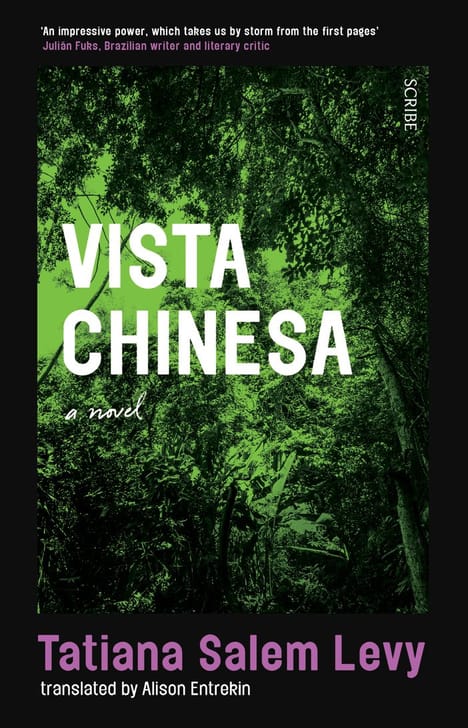
Vista Chinesa
Inspired by a real event, this is the story of a woman and a city that were violated.
It is 2014. There is euphoria in Brazil, especially in the city of Rio de Janeiro. The World Cup is about to take place, and the 2016 Olympics are in sight. It is a time of hope and of frenzied construction.
Júlia is a partner with an architecture firm that is planning projects for the future Vila Olímpica. During a break from one of these meetings at the town hall, Júlia goes for a run in Alto da Boa Vista. Suddenly, someone puts a revolver to her head, takes her to a secluded spot, and rapes her. Left abandoned in the woods, she drags herself home, where her boyfriend and some family members wait for her.
Vista Chinesa brings light and shadow to a city whose stunning beauty cannot conceal the most serious human and political problems. This is a novel that turns a tragic, real chapter in the story of a woman into great literature.
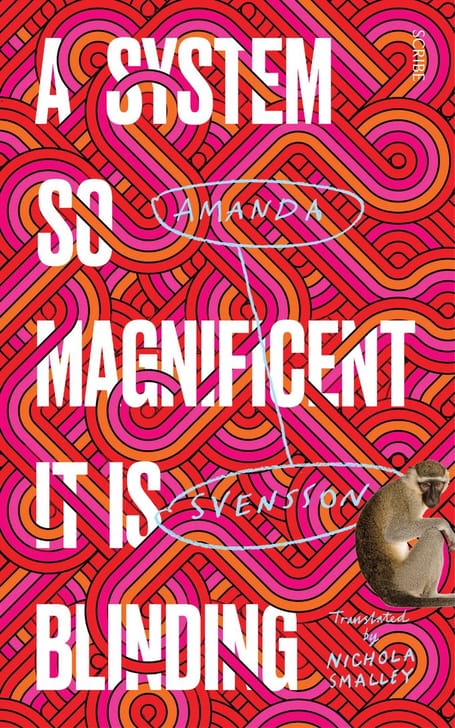
A System So Magnificent It Is Blinding
LONGLISTED FOR THE INTERNATIONAL BOOKER PRIZE
Are we free to create our own destinies or are we just part of a system beyond our control?
A joyful family saga about free will, forgiveness, and how we are all interconnected.
In October 1989, a set of triplets is born, and it is this moment their father chooses to reveal his affair. Pandemonium ensues.
Over two decades later, Sebastian is recruited to join a mysterious organisation, the London Institute of Cognitive Science, where he meets Laura Kadinsky, a patient whose inability to see the world in three dimensions is not the only thing about her that intrigues him. Meanwhile, Clara has travelled to Easter Island to join a doomsday cult, and the third triplet, Matilda, is in Sweden, trying to escape from the colour blue.
Then something happens that forces the triplets to reunite. Their mother calls with worrying news: their father has gone missing and she has something to tell them, a twenty-five-year secret that will change all their lives …
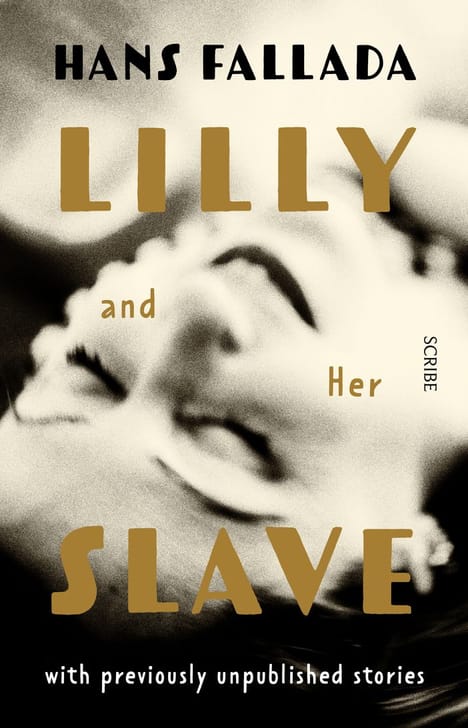
Lilly and Her Slave
Almost 100 years after Hans Fallada committed himself to prison, previously unpublished and rewritten stories by the bestselling mid-century German author have been discovered.
It was the turning point before he became a bestselling author: Hans Fallada handed himself in to the police in September 1925, following repeated cases of embezzlement to finance his alcohol and morphine addiction.
At the time, a court-appointed doctor was assigned to assess the extent to which Fallada could be made accountable. This expert opinion, thought to have been lost, was only recently rediscovered. It is an extraordinary find, because it includes unpublished and rewritten stories by Fallada that reveal his early, unparalleled insight into the female psyche, and that focus on hitherto taboo topics such as rape and abortion.
The title character, Lilly, is a young, untamed, headstrong girl. She sets out to ‘play’ with a young man, but ends up losing control of the situation. Barely able to hide her questionable actions, she ends up in a sanatorium, where she engages in a bizarre duel of reciprocal manipulation with another patient. In the end, it is impossible to tell who is victorious.
Marie and Thilde, the protagonists of two other stories, are strong women who rebel against the pre-established patterns imposed on them by society, while two male outsiders, Pogg and Robinson, seek refuge and hope in a prison cell.
These stories — written while the author was relishing the opportunity in prison to free himself of his addictions — reveal to a new generation of readers Fallada’s immense gifts and his intense battles with the dynamics of human relationships.
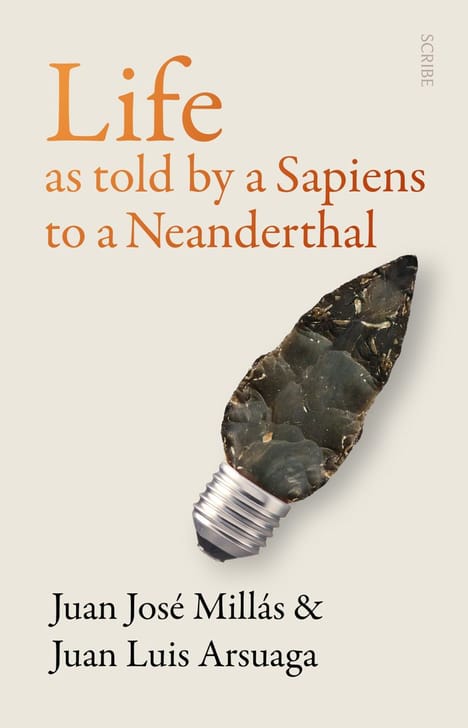
Life As Told by a Sapiens to a Neanderthal
A New Scientist Book of the Year
Prehistory is all around us. We just need to know where to look.
Juan José Millás has always felt like he doesn’t quite fit into human society. Sometimes he wonders if he is even a Homo sapiens at all, or something simpler. Perhaps he is a Neanderthal who somehow survived? So he turns to Juan Luis Arsuaga, one of the world’s leading palaeontologists and a super-smart sapiens, to explain why we are the way we are and where we come from.
Over the course of many months, the two visit different places, many of them common scenes of our daily lives, and others unique archaeological sites. Arsuaga tries to teach the Neanderthal how to think like a sapiens and, above all, that prehistory is not a thing of the past: that traces of humanity through the millennia can be found anywhere, from a cave or a landscape to a children’s playground or a toy shop.
Millás and Arsuaga invite you on a journey of wonder that unites scientific discovery with the greatest human invention of all: the art of storytelling.
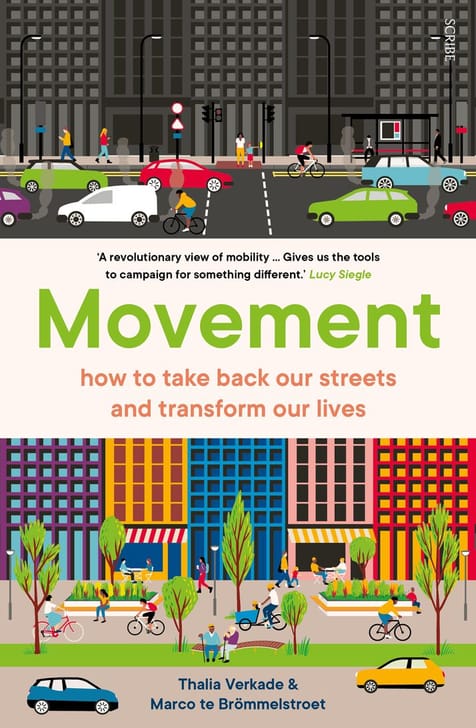
Movement
Our dependence on cars is damaging our health — and the planet’s. Movement asks radical questions about how we approach the biggest urban problem, reflecting on the apparent successes of Dutch cities.
Making our communities safer, cleaner, and greener starts with asking the fundamental question: who do our streets belong to?
Although there have been experiments in decreasing traffic in city centres, and an increase in bike-friendly infrastructure, there is still a long way to go.
In this enlightening and provocative book, Thalia Verkade and Marco te Brömmelstroet confront their own underlying beliefs and challenge us to rethink our ideas about transport to put people at the centre of urban design.
